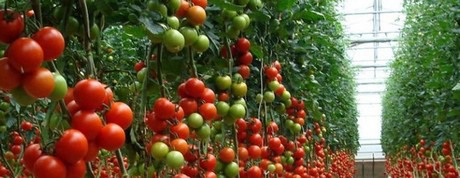The increase in production costs, the growing competition from other countries and the spread of new pests, such as the Tuta absoluta, are making tomato growing in the Spanish province of Almería increasingly difficult due to the falling revenues and profits. Over the last five years, this has led to a continuous reduction in the acreage devoted to tomatoes, in favor of other vegetables with lower production costs and more stable prices, such as zucchini, peppers and watermelons.

This season, the acreage is expected to fall again, which will result in a yet smaller harvest. "We don't yet know the extent to which tomato cultivation will be reduced this year in Almería, but it will be a significant reduction, somewhere between 10 and 20%, according to the seed companies," says Francesc Llonch, director of Kopalmeria, from Gavà Grup. "The growers who stop planting tomatoes mostly switch to zucchini, a vegetable whose area continues to expand. Crops like peppers have slightly higher cultivation costs, but the yields in Spain are higher every year. The country is a world leader in this crop, and will continue to be so for many years."
According to the grower and trader, tomato cultivation is the most expensive compared to other vegetables. In addition, cultivation costs have increased by 20% in the past season due to the increase in the minimum wage, which came into effect on January 1, 2019 and resulted in tighter profit margins. At the same time, competition from Morocco, and to a lesser extent from Turkey, is increasing in the winter months, and the same applies to the Netherlands and Poland in the spring and summer.
On top of that, we must take the outbreak of the Tuta absoluta into account, which is the reason for many growers to be increasingly reluctant to plant tomatoes. "There are still no treatments that guarantee success in controlling the Tuta absoluta, although the release of predatory insects, such as the Nessi, in integrated control seems to keep the pest at bay somewhat. This insect works more effectively in the summer-autumn cycle and is less active in the spring, the period in which the Tuta absoluta propagates exponentially. It is difficult to maintain a good balance between the Nessi and the Tuta; it is much like lions and gazelles on the savannah," said Frances Llonch.
For more information:
Francesc Llonch
KOPALMERIA/ Gavà Grup
Carretera sector IV, 1 04745- La Mojonera, Almeria. Spain
T: +34 950 33 11 37
francesc@gavagrup.com
www.gavagrup.com
